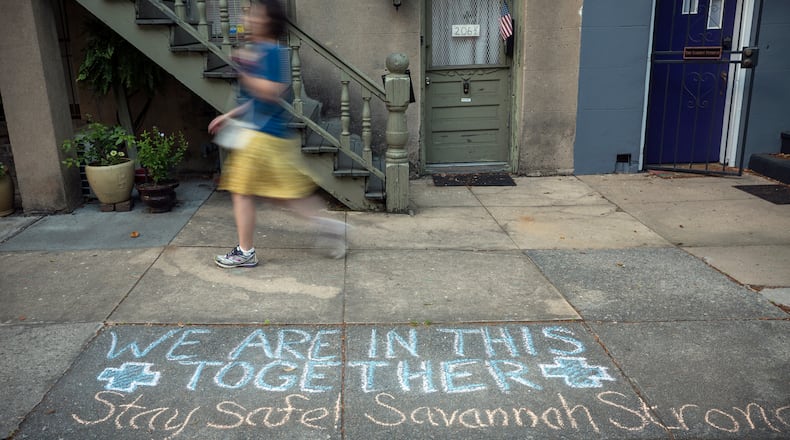A 7-year-old boy from the Savannah area has died from COVID-19, Georgia health officials reported Thursday, making him the youngest person in the state known to have died from the disease.
News of the child’s death comes the same day Georgia surpassed 4,000 confirmed coronavirus deaths since the start of the pandemic. Little information was released about the child, but the Georgia Department of Public Health said the boy, who lived in Chatham County, had no reported chronic conditions. DPH declined to release additional information, citing federal health privacy laws.
Deaths among children from the virus are rare, and infections among kids tend to be less severe than for adults. But COVID-19 is not without risks even for the young. In recent weeks, state health officials have warned about a dangerous inflammatory condition in children that is suspected to be linked to the virus.
DPH reports 16,738 cases of the coronavirus in people aged 17 and under, with 267 hospitalizations. The 7-year-old is the second Georgia child to die from COVID-19, following the death of a 17-year-old Fulton County boy reported in late May.
Dr. Harry J. Heiman, a clinical associate professor at the Georgia State University School of Public Health, said there are false narratives that children cannot get sick, transmit the virus or die from COVID-19.
“This is a tragic reminder that this is a very serious disease and serious for anyone who contracts it at any age,” Heiman said.
Nationwide, the Atlanta-based Centers for Disease Control and Prevention reports 45 deaths nationwide attributed to COVID-19 among those age 14 and younger as of Aug. 1.
There have been more than 157,000 deaths from the virus nationwide.
Georgia is among 21 states with outbreaks serious enough be placed in the “red zone” by the White House Coronavirus Task Force, according to a federal report obtained last week by The New York Times.
Georgia reported 3,182 net new cases of the coronavirus on Thursday and 42 confirmed deaths. To date, nearly 205,000 confirmed cases of the disease have been reported in Georgia, along with 4,026 deaths.
Georgia reported week-over-week case increases in nine out of 10 weeks from early May through mid-July, when the state’s cases appeared to plateau at about 25,000 per week.
The seven-day rolling average has declined from a peak of 3,745 on July 24 to 3,230 on Thursday.
But that new case rate remains five times higher than June 1. Current hospitalizations have edged slightly lower than their peak of 3,200 on July 30 but remain above 3,000, or nearly four times higher than the low point in early June.
Deaths, which often lag new cases by weeks, also have been climbing.
COVID-19 has had a disproportionate impact on communities of color. Blacks make up about one-third of Georgia’s population, but they account for about half of all deaths, DPH data show.
The Chatham County child was Black.
The White House Coronavirus Task Force report, which was distributed to states, recommends a mandate for the public to wear masks in coronavirus hot spots and, "optimally," statewide.
The task force report recommends Georgia close bars, nightclubs and entertainment venues, and limit indoor dining at restaurants to less than 25% capacity. Other recommendations include beefing up testing and contact tracing and weekly testing of workers and residents of long-term care facilities.
Gov. Brian Kemp has encouraged people to wear face coverings but has balked at a mask mandate. He sued Atlanta over a mask requirement and steps by Mayor Keisha Lance Bottoms to roll back reopening plans because they conflicted with his orders. Kemp also has resisted re-implementing tighter restrictions on businesses.
In recent days, some school systems have returned to in-person instruction and colleges are soon to start the fall semester.
Heiman, the Georgia State professor, and other independent public health experts have warned school systems and colleges risk triggering a bigger resurgence in cases by having in-person classes.
More than 2,000 medical professionals also recently wrote Kemp pleading for the governor to enact a mask mandate and enact tougher measures to curb the spread.
“We need to think very seriously about what policies and practices need to be put in place to ensure the safety of our children,” Heiman said. “That includes recognizing that given the current level of spread in our communities it is not safe to reopen schools to in-person instruction.
“The reality is we need to face this in a much more aggressive way or there will be more tragic stories,” he said.
About the Author
The Latest
Featured


